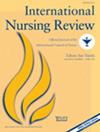Nurses’ Engagement in Healthcare Policy Development: An Umbrella Review
Abstract
Background and Introduction
Healthcare policy establishes guidelines for delivering safe and effective healthcare, achieving and improving health-related outcomes, and mitigating public health risks. Nurses are uniquely positioned to lead healthcare policy development; however, evidence of nurses’ engagement in policymaking is limited. This umbrella review aims to examine and summarize nurses’ involvement in healthcare policy development aimed at transforming health.
Methods
Following the Joanna Briggs Institute umbrella review methodology, a systematic search was conducted across seven databases for peer-reviewed literature. Quality and risk of bias were assessed using the ROBIS tool. Data were analyzed using qualitative content analysis and meta-synthesis. This review is registered in PROSPERO (ID: CRD42023458475).
Results
The search yielded 591 records, which were evaluated using PRISMA guidelines. Articles (N = 7) were included if they were written in English, Japanese, or Arabic, reported a literature review study, and participants were registered or licensed nurses. Four master themes were identified: (1) diminished support and preconceived expectations of nurses’ roles in policy development contributed to individual, organizational, and system-level barriers; (2) hierarchical marginalization of nurses’ voices, interprofessional and gender dynamics, and limited leadership roles of nurses impact meaningful participation; (3) nurses’ internal perceptions, knowledge, and beliefs regarding power, role expectations, and interest, limit involvement in policy development; and (4) the development of skills and understanding of policy through education, training, modeling, and mentorship is foundational for informed and authentic engagement.
Conclusions
None of the included reviews identified nurses’ engagement in healthcare policy development. Lack of engagement was due to multilevel barriers, hierarchical marginalization, and limited skills.
Implications for Nursing and Healthcare Policy
Nurses are the voice of patient, family, and community health and well-being. This responsibility requires our engagement in healthcare policy development at all levels. Including nurses in healthcare policy development is crucial in creating healthcare that is fit for purpose and in the sustainability of the nursing workforce.


 求助内容:
求助内容: 应助结果提醒方式:
应助结果提醒方式:


